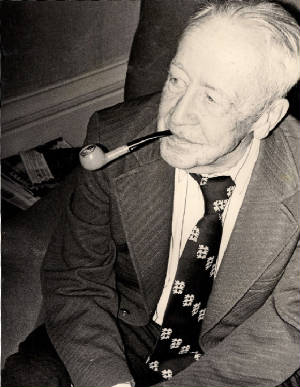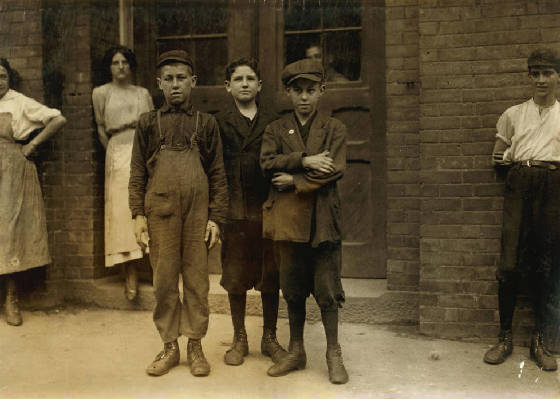
Lewis Hine caption: On right hand is Richard Fitzgerald, 53 Montgomery St., works in twisting room of Eclipse Mills, No. Adams. On left hand, Joseph Adams, 107 Front St., works in twisting room of Eclipse Mills,. Location: North Adams, Massachusetts, August 1911.
“He always had a radio in his ear, listening to the baseball games. I’ll never forget when they came out with transistor radios. He got one, and he would sit in his recliner and listen. Then later on, when the games were televised, that was his pastime. I can still hear him. If the Yankees screwed up, he’d mumble under his breath, ‘Those stupid…should’ve been a double play,’ and stuff like that. He’d be in his recliner with his eyes closed, and I could swear he was sound asleep. But if you asked him the score, he’d tell you.” -Peter Levesque, nephew of Joe Adams
**************************
“While they stated this afternoon that something would probably be done within a few days about the situation on Front Street where washouts in the flood of four weeks ago and landslides since have carried away sections of the road and threatened to cause the collapse of houses, city officials had not yet decided just what that something would be.”
“Whatever is done now is not expected to be final or a complete job. The city faces the alternative of putting in a retaining wall at a cost of $100,000 to restore the road to its former condition, or of buying all the property on the street, tearing down the buildings and abandoning the thoroughfare, but it has not the money at the present time to do either. Whatever is done next week will probably be of a temporary nature to protect the houses that now appear to be endangered, and to stop further sliding away from the land.” -excerpted from North Adams Transcript, December 2, 1927
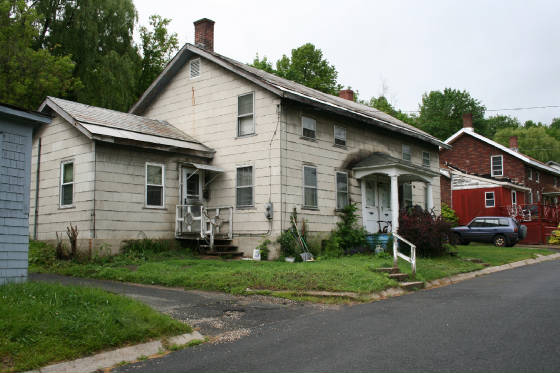
Front Street in North Adams is just across the Hoosac River from the Eclipse Mill. A row of almost identical houses, built around 1890, are lined up along the narrow, dead-end street, the only space between the houses and the river. Before the Army Corps of Engineers constructed flood chutes in the early 1950s, there were a number of devastating floods in North Adams, and this was one of the city’s most vulnerable areas.
Josephat (Joe) Adams, who lived his whole life at 105-107 Front St., almost lost his house in one of those floods. He was born on May 25, 1901, in Saint-Jacques-le-Mineur a parish municipality in Quebec, about 25 miles south of Montreal. He was the youngest of nine children of Napoleon and Eugenie (Brosseau) Adams. When Joe was just a baby, he and his family came to the US (1902), and settled on Front Street in North Adams. They rented the house from Arnold Print Works, the largest cloth printing mill in the US at the time. Their biggest facility was on 12 acres near downtown North Adams, and later was occupied by Sprague Electric Company, until it closed in 1985. The complex is now occupied by the huge Massachusetts Museum of Contemporary Art. In the early 1900s, Arnold owned part of the Eclipse Mill. In 1911, the house was purchased by the Hoosac Cotton Mill, and they owned it until 1934, when Joe Adams and his wife bought it.
In the 1910 census, Joe is listed as living with his parents and five siblings. Most of the family was working in the mills. The census incorrectly listed the surname of the Adams children as Goodrum, which was the surname of the husband of the oldest daughter, who also lived in the household. In the 1920 census, Joe is living with his father, already 74 and retired, and Joe is working at the Hoosac Cotton Mill (Eclipse Mill). In 1930, Joe is living with his widowed mother and still works at the mill.
Joe married Lillian Levesque on June 20, 1932, and did not have any children. He passed away in his Front St. house on February 9, 1984, at the age of 82. Lillian died on October 15, 2001, at the age of 95.
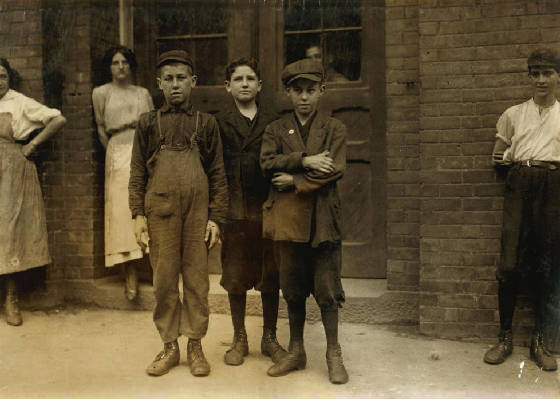
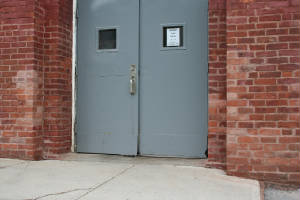
Edited interview with Peter Levesque (PL), nephew of Joe Adams. Interview conducted by Joe Manning (JM) on November 9, 2009.
JM: How old are you?
PL: 64.
JM: How are you related to Joe exactly?
PL: He married my father’s sister, Lillian Levesque.
JM: Did you know Joe’s parents?
PL: No.
JM: How close a relationship did you have with your Uncle Joe?
PL: Pretty close. When I was growing up, I used to be at their home a lot. It was one of those duplexes on Front Street. His parents owned the house and lived at 105. He grew up there. Then he moved to 107 after he got married. When his parents passed, he remodeled 105 and moved in there. There was the big flood, and it almost washed the house away. The only thing that held the house up was a large cable that someone brought over and tied around the house, and then he tied the other end to a maple tree in the back. The rear part of the foundation stayed, but everything else under the house was wiped out. They had to put new foundations under all of those houses.
JM: An interesting feature of those houses is the tiny rooms on either end of the each house.
PL: Those were the kitchens.
JM: What did he do for a living?
PL: He worked in the mills, mostly Windsor Print (Windsor Print Works, just west of the Eclipse Mill). He ended up being a foreman. He worked there pretty much until he retired, when he was about 68 or 69 years old. Then he went back to work part time, at the Eclipse Mill. He worked on the second shift for a while. Then he did odd jobs here and there. He didn’t have to travel far. From his house, he could see the Eclipse Mill and Windsor Print. He walked to work, but he had a car.
JM: Did his wife Lillian work, too?
PL: Yes, she worked in accounting at Sprague Electric.
JM: How many children did they have?
PL: None.
JM: What do you think about the fact that he was only 10 years old when he was photographed as a worker at the mill?
PL: I found it almost unbelievable. Until you sent me the photo, I never knew it. He never mentioned it. He was 10, but he looked older. He definitely looked like my Uncle Joe.
JM: He was taller than the two kids next to him, and they were older.
PL: But he wasn’t a tall guy when he grew up. His wife was a little taller than he was.
JM: What was he like?
PL: He was an easygoing guy, a straight shooter. He loved baseball, and he loved the Yankees. He told me he played a little baseball himself on the local teams. He talked about using homemade gloves and leather balls. We went over to the Hall of Fame in Cooperstown once, and they had one of those leather balls that he was talking about.
He always had a radio in his ear, listening to the baseball games. I’ll never forget when they came out with transistor radios. He got one, and he would sit in his recliner and listen. Then later on, when the games were televised, that was his pastime. I can still hear him. If the Yankees screwed up, he’d mumble under his breath, ‘Those stupid…should’ve been a double play,’ and stuff like that. He’d be in his recliner with his eyes closed, and I could swear he was sound asleep. But if you asked him the score, he’d tell you.
He liked to fish. He used to go up to Lake Champlain and fish for wall-eyes (wall-eyed pike). He and my aunt would stay up there in a cabin for a couple of weeks. He’d drag me along sometimes. It was great. I was young, and they’d spoil the daylights out of me.
JM: When you went fishing with him, what did you talk about?
PL: He was a geography buff. He would tell me about the lake, and about the river (Richelieu River), and how it ran up into Canada, and how it went down into the Hudson, and the different towns that were along the river. And he would quiz me to see if I remembered. He didn’t have a real formal education, but he was sharp as a whip.
JM: Did he speak French?
PL: Sometimes he would call me names in French. When they didn’t want me to hear them, he and my aunt would talk in French.
JM: And you’d wonder what they were talking about?
PL: Sure. I didn’t understand it.
JM: Did he ever try to teach you French?
PL: No, just geography. He would say, ‘You were born and brought up in the United States, and you don’t even know where Chicago is.’ He knew all the names of the presidents and where they came from. He read the newspaper every day from cover to cover, and did the crossword puzzles. He was an avid cribbage player. If he knew you played cribbage, and you were there, you would get sucked in. I didn’t play it. He also played poker.
He and my aunt were almost like my second parents. We lived up in the country, in Savoy, but I went to St. Joseph’s High School in North Adams, so I spent a lot of time at their house. I would stay overnight three or four times a week. I was well fed and spoiled. They used to drag me off to the drive-in movie. Those were great times. When I was 16, I bought a car. I needed some tires for it, so I went down to Jack & Harry’s, but they told me I was too young to charge it, so they put Joe’s name on the bill, and he got the bill. He hated that, but he paid it off. He didn’t like to owe anybody.
He went to church faithfully. He enjoyed going out and having a good time. He liked to have a snort or two. He wasn’t a big drinker, but he could get a little jolly. He was a well-liked guy. There wasn’t anybody that didn’t like Joe.
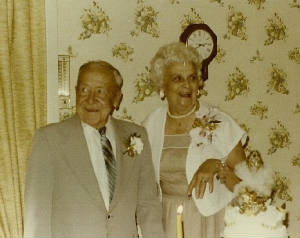
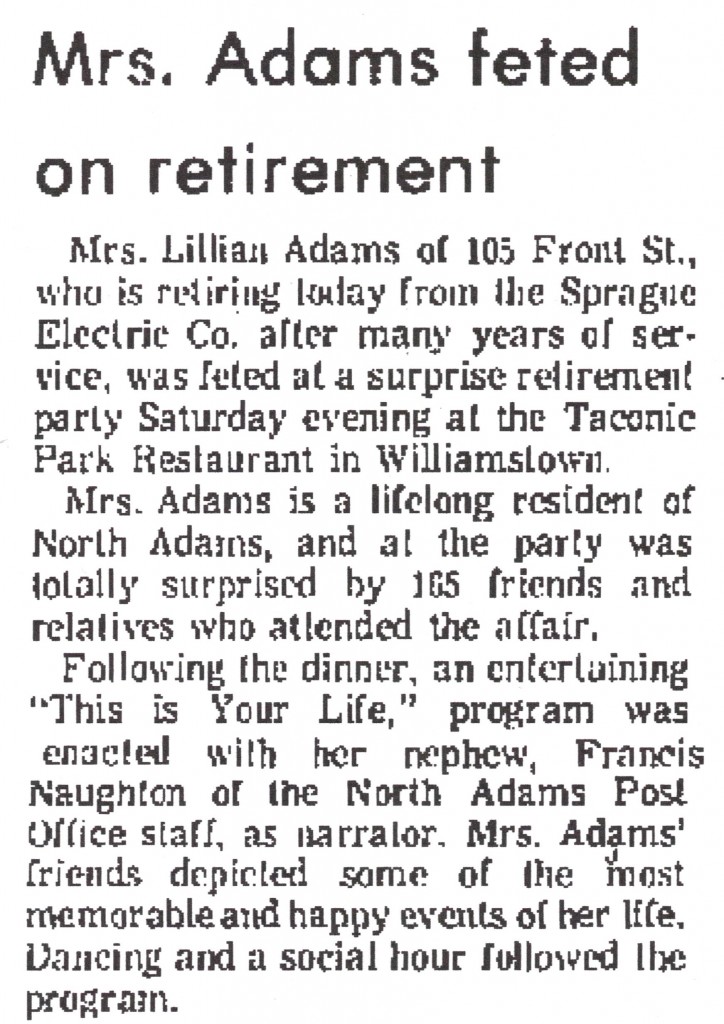
PL: Aunt Lillian was a very nice lady. She was very classy. A lot of that rubbed off on Joe. She always kept him well dressed. He always wore a suit and tie. Every picture you’d see him in, he was in that suit and tie, except if he was home. They were pretty well off financially. He owned the house free and clear. I used to call them my rich aunt and uncle. They would always have a new car, and they paid cash for it. He did alright. It didn’t take much to make him content. If his wife wanted to go to California, he’d say, ‘Well, go ahead.’ She took him on a trip one time, and he got off the train to get a newspaper, and the train left him. He had to catch the next one. Things like that were always happening to him, because he was so laid back.
I’ll tell you a cute story. They used to have clambakes, all the mill workers. They used to have this clambake near my house in Adams. I invited my Aunt Lillian and Uncle Joe, because I knew he loved drinking beer and eating clams. At the clambakes, they’d always have card games going, like poker. A couple of guys that I knew said to me, ‘Hey, why don’t you come over and play?’ And I said, ‘I don’t know anything about poker.’ And one of the guys said, ‘What about that old man sitting there?’ They meant Uncle Joe. So I told him they were playing poker. So Uncle Joe says to them, ‘What are you guys playing, Rummy?’ And they say, “No, poker.’ So he went over, and he says, ‘You’ll have to explain the rules to me.’ They were playing for money. You know what? He cleaned them out. He took them really bad. He could play poker better than anyone there.
JM: It looks like he lived in that house on Front Street his whole life.
PL: Well, he came to the US when he was just a baby, and that’s the first house he lived in, and the last. When he was very sick, they brought him home, and he died in that house.

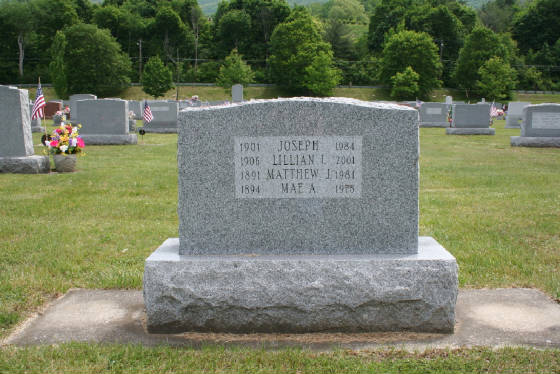
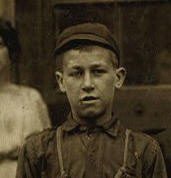
*Story published in 2010.

